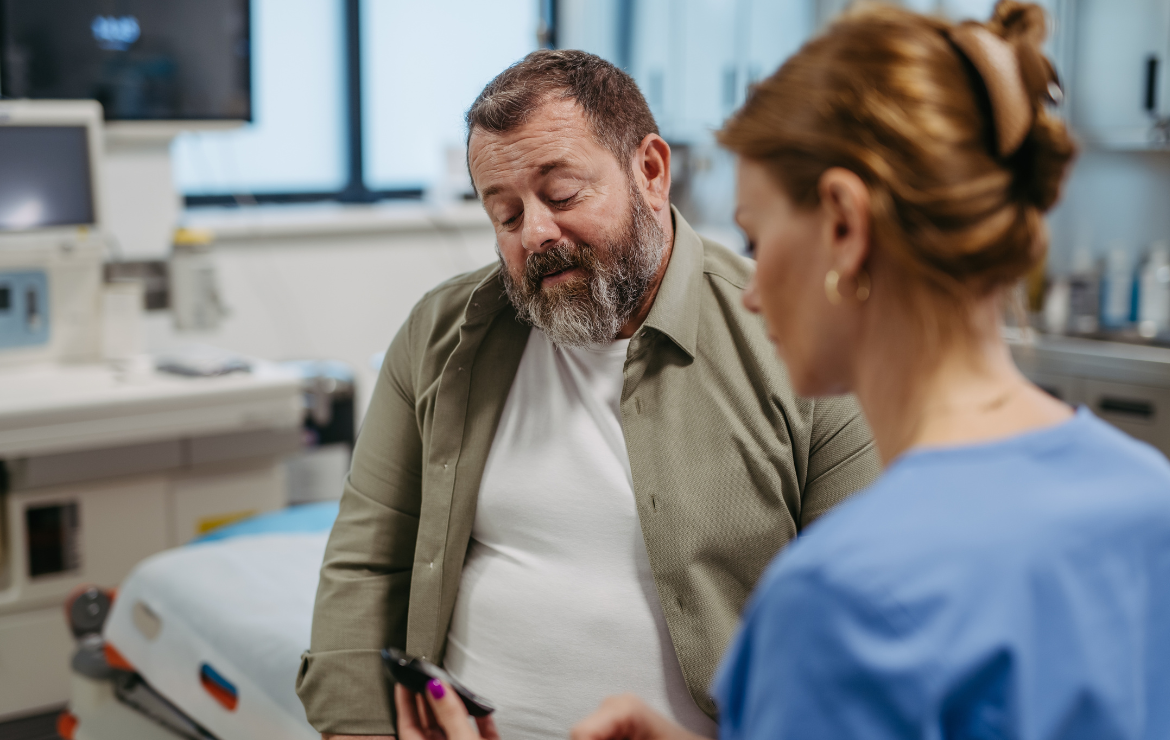Why Early Identification and Proactive Management Matter

A Growing Challenge
Diabetes is no longer a peripheral health concern—it’s a growing epidemic that’s reshaping the workers’ compensation landscape. With over 11% of U.S. adults diagnosed and one in three identified as prediabetic, the impact on recovery, cost, and return-to-work timelines is undeniable. Post-COVID trends have also shown a rise in younger workers developing diabetes, often without typical risk factors such as obesity.
When Injury Meets an Undiagnosed Condition
In the claims process, many injured workers first discover their diabetes during hospitalization or post-surgical evaluation. This late discovery can derail recovery. Elevated A1C levels delay surgical clearance, increase infection risk, and prolong wound healing—often adding 20 or more days to recovery time.
In more severe cases, uncontrolled glucose levels lead to chronic wounds, infections, and even amputations—turning a straightforward claim into a costly, long-term case.
The Red Flags Adjusters and Case Managers Must Recognize
Identifying potential diabetes early in the claim can change outcomes dramatically. Red flags include:
- Slow wound healing
- Recurrent infections
- Neuropathy-like symptoms such as tingling or numbness
- Fatigue, mood changes, or blurred vision
- Unexplained weight changes
When multiple symptoms appear together, they often point to an underlying metabolic issue. Integrating basic screenings such as A1C tests, blood pressure, and wound history during intake helps flag high-risk profiles before complications escalate.
The Power of Proactive Case Management
The webinar’s experts emphasized that early case management is the single most effective tool to prevent complications. Nurse case managers play a pivotal role—coordinating care between occupational health physicians, endocrinologists, and primary care providers to ensure diabetes is managed even when it’s not a compensable diagnosis.
Their involvement not only improves compliance and communication but also reduces claim costs and shortens recovery times.
Innovations Driving Better Outcomes
Advancements in technology and treatment are transforming diabetes management for injured workers:
- GLP-1 medications (like Ozempic®) improve glucose control, support weight loss, and accelerate wound healing.
- Continuous Glucose Monitors (CGMs) and smart devices provide real-time data every five minutes—helping workers understand how diet, stress, and medications affect their glucose levels.
- Coaching and digital health programs add the human element—educating injured workers on nutrition, behavioral change, and medication adherence to truly “move the dial” on recovery.
The ROI of Managing Diabetes Early
The financial implications are striking. As presented in the webinar’s ROI calculator, unmanaged diabetes can cost employers hundreds of thousands of dollars annually in lost time and extended claims. Each unmanaged diabetic claim averages 20 extra lost days, amplifying wage replacement, medical costs, and productivity losses. Conversely, integrating proactive screening and diabetes coaching reduces total claim duration, shortens recovery, and prevents re-hospitalization.
Looking Ahead: A Cultural and Psychosocial Perspective
Beyond clinical management, adjusters and care teams must consider cultural and psychosocial influences. Beliefs about illness, health literacy, and access to care all shape an injured worker’s compliance. Supporting education, communication, and empathy are as important as medical interventions in achieving better outcomes.










